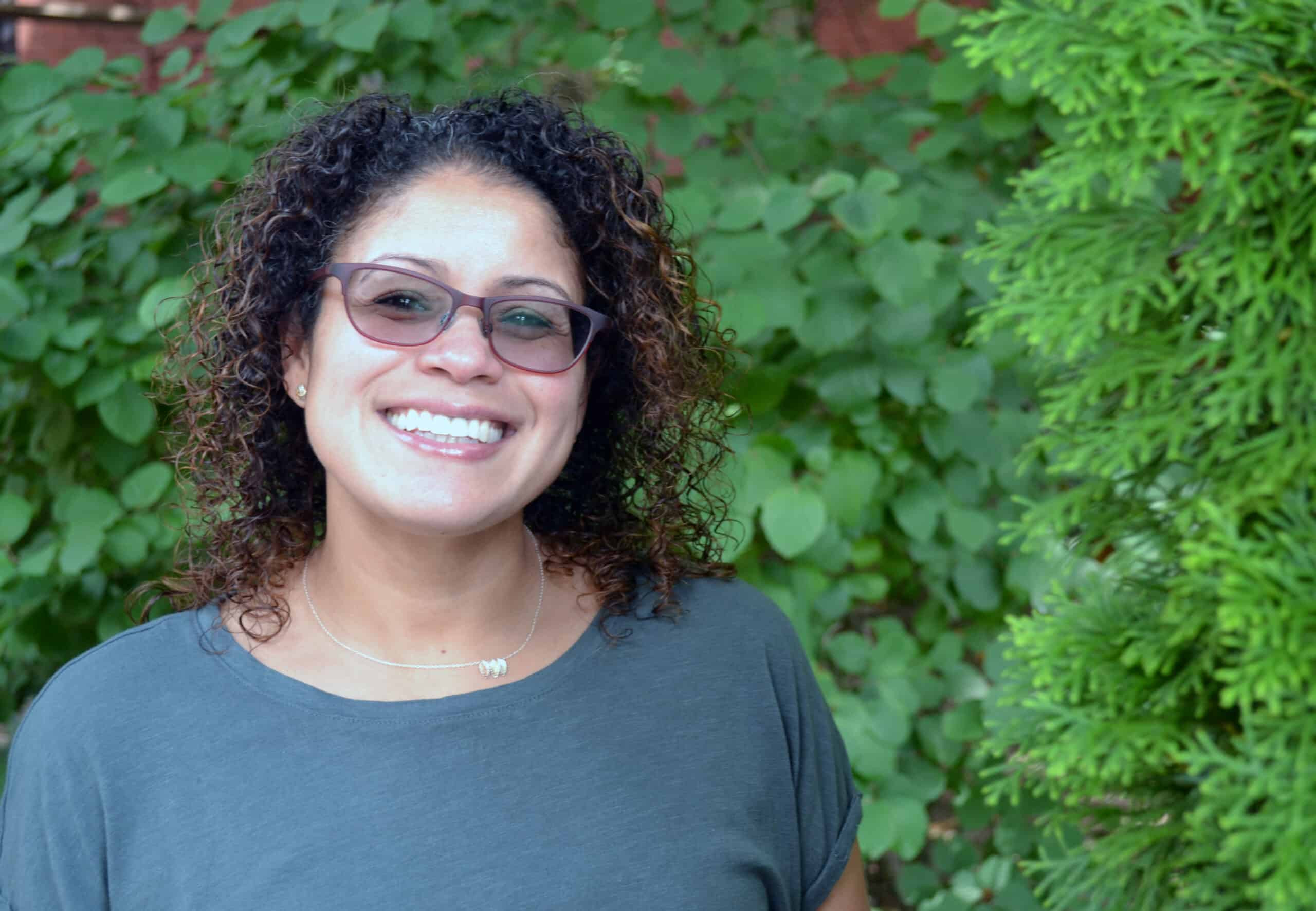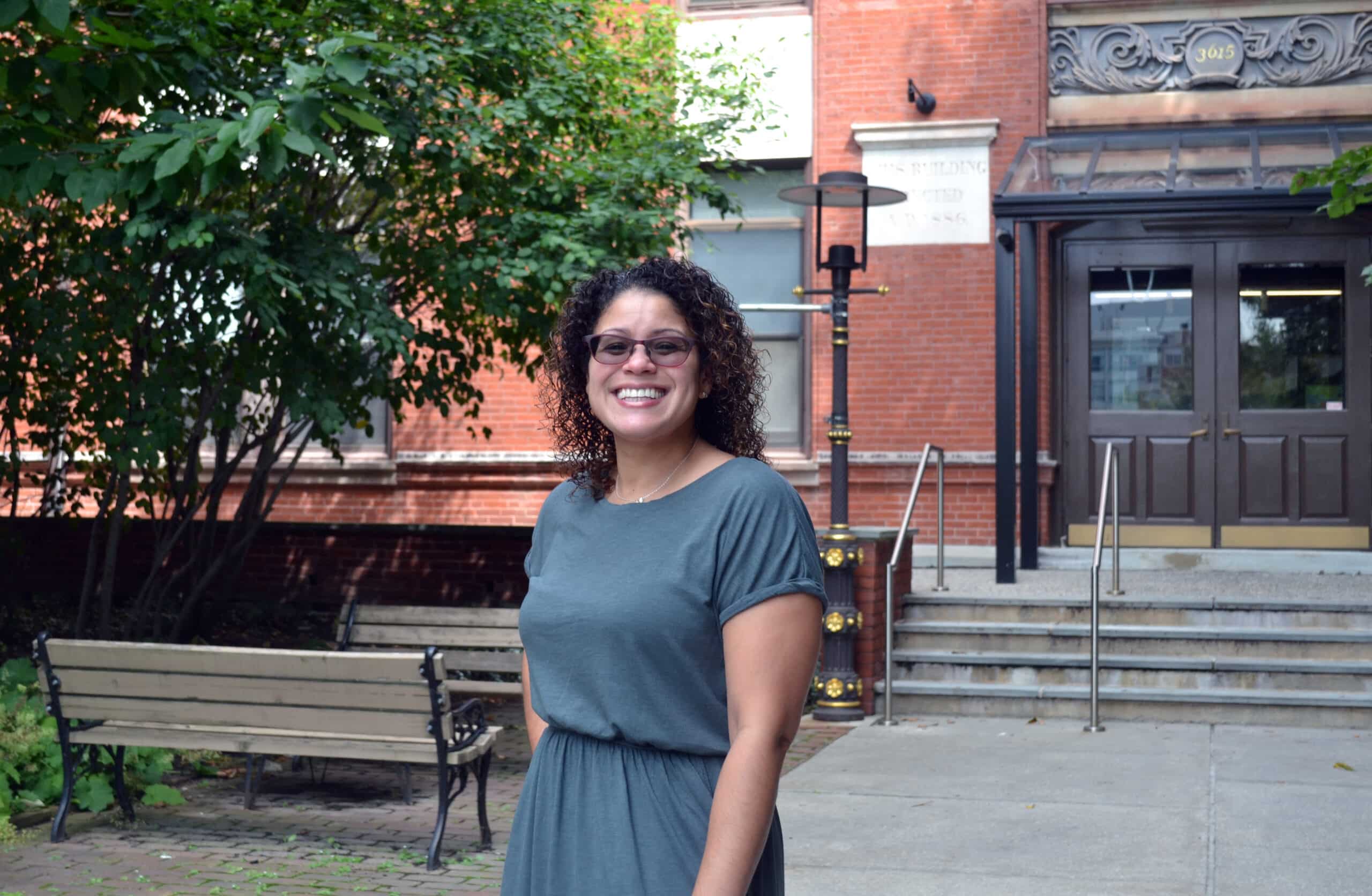By Danny Yarnall
Jessica Nuñez first walked into the Memory Disorders Clinic on July 10, 1995, having recently finished her sophomore year at Thomas Alva Edison High School. She admittedly didn’t know what to expect from her new summer job.
“I did not know anything about the memory center. I did not know anything about Alzheimer’s disease. I just needed a part-time job in the summertime,” said Jessica, now in her 25th — and final — year at what has become the Penn Memory Center. A research coordinator since 2003, Jessica will be leaving PMC in August to pursue new career opportunities.
Jessica’s early work focused primarily on how dementia is presented and understood in Latino communities. That work included a collaboration with clinics in Puerto Rico and Mexico to compare age of onset and risk factors in those nations to the United States. The study found that Latino patients express symptoms of dementia earlier than their white or African-American counterparts, anywhere from three-and-a-half to six years earlier.
“There were a lot of contributing factors in the Hispanic community” such as depression, she said.
At this time, Jessica also dedicated herself twice a week to the recruiting and psychometric testing of patients at Maria de los Santos Health Clinic a few blocks away from her old high school.
“I learned a lot of Hispanics don’t really understand what Alzheimer’s really is, so education was very key,” she said. “We had to educate them first before we could diagnose them.”
For Jessica, her interest in the disease became even more personal over her time on staff.
“I wanted to understand why and how it took your loved ones away,” she said.
First, her aunt was diagnosed with Alzheimer’s just as Jessica began working at PMC. Then her mother was diagnosed with Lewy-body dementia at the PMC clinic. Jessica became a full-time caregiver until her mother moved into a care facility. Her late grandmother died from Alzheimer’s disease, and her grandfather was recently diagnosed with Alzheimer’s disease as well.
Seeing the effects of the disease daily, Jessica sought to learn whatever she could about it from the experts around her. This included taking cognitive psychology courses and observing a brain autopsy. In 2003, she noted that her grandmother was exhibiting signs of Alzheimer’s disease and took her to a neurologist, even making suggestions for which tests he should order.
“He looked at me like he thought I was crazy” until the results came back, Jessica said. “He was like ‘I guess you knew your stuff.’”
What Jessica will miss the most, she said, is her connection with PMC patients and colleagues.
“I have cultivated a lot of relationships with my patients and their caregivers and their study partners for the last 8 to 10 years,” she said. “It’s going to be weird not seeing them every day.”
Jessica’s next chapter includes working as a research project manager for Penn Interventional Radiology and Breast Imaging and pursuing her dream of becoming a nurse.
“Jessica has been an integral member of the Penn Memory Center team,” said PMC co-director Dr. David Wolk. “She developed strong bonds with our patients and caregivers, providing comfort and support as they navigated often complicated clinical research studies. She will certainly be missed not only by her colleagues, but by the many families she has touched during her time with us.”

